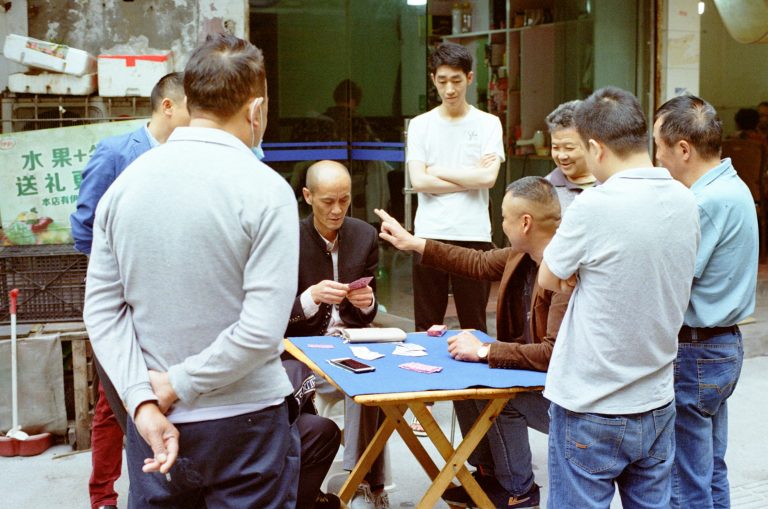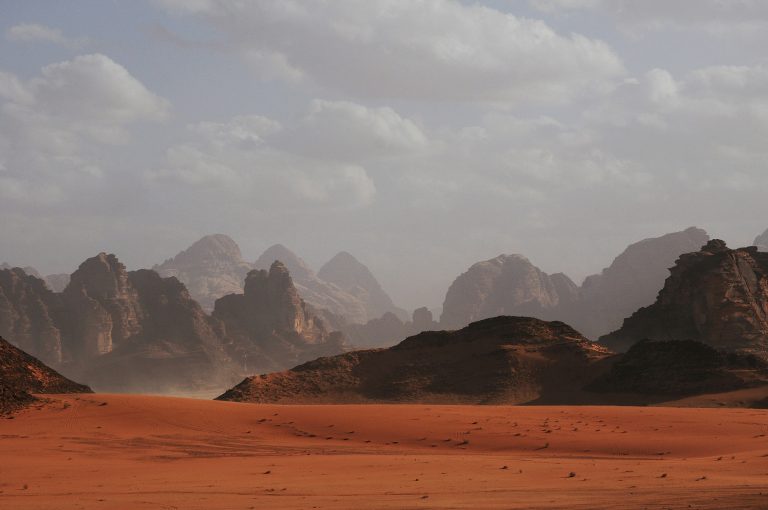
Editor’s note: Wang Jianguo is the collective pseudonym for a group of Chinese house church pastors writing and thinking critically about issues related to the spread of Christianity in their nation. They are committed to preaching a grace-centered gospel, developing resources for the church, and loving China’s urban centers. This pastor is currently studying at a seminary in the States, but plans to return to China once his studies are complete. You can read the rest of this series here: Part 1, Part 2, part 4.
The fourth section, I call Acts. In 2008, the earthquake happened. [It measured 8.0 on the Richter scale and occurred on May 12, 2008, in Sichuan, China.] There have been other earthquakes since, but this was the biggest and worst, with the most deaths.
For the house church, the earthquake was very important. The Chinese church was highly influenced by conservative church tradition, and stayed away from the culture. We stayed away in order to protect ourselves, to survive. This worked during the Cultural Revolution, and in the years of heavy persecution. The Three Self church, on the other hand, did do mercy ministry. They were liberal people, doing mercy ministry. We had drawn a very clear line with them.
The earthquake shook the Chinese house churches to the ground. The house churches were very involved in responding to the earthquake. We realized, “Wow, we are not alone.” We were trying to do something at the disaster scene, but through that, we recognized one another. We found, “Wow! We are not the only church in Shanghai.” Some leaders met one another in Sichuan and discovered their churches met in the same building! They did not know one another, because nobody talked in the elevator on the way to church.
That year was the birth of the church in China going public. It was a very special year. The stock market plunged, the earthquake happened, and we hosted the Beijing Olympics. That was when I saw the picture on the university gates of all nations, races, and languages coming together. The Olympic slogan was “One world, one dream.”
As Christians, sports ministries would come to China and urge us to do missions, because God was bringing the nations to us. I had never thought about that. I never dreamed China could share the gospel with other nations, because we still had so many people to share with in China. This was the time when all Chinese, including the churches, had wide eyes. The churches were also harshly persecuted that year.
Never miss a story
The Shanghai Expo happened in 2010. Not many cities see this expo as a big deal, but we do – Chinese people always see any international event as big. The slogan was, “Better city, better life.” There was a book about the expo called Chinese Wisdom in Urban Development: The World Expo 2010, Shanghai, China. In 2008, everyone in China, including the churches, was overwhelmed with these words: World. Dream. Urban. Life.
I had been thinking about these things, and was struggling in the conservative church. These were things the churches did not talk about. “The world? No – us. Dream? No – scripture. Urban? No, no, no – better to retreat, the urban areas belong to Satan. And life? No – church community.”
“The world? No – us. Dream? No – scripture. Urban? No, no, no – better to retreat, the urban areas belong to Satan. And life? No – church community.”
The first year I was called to become a full-time minister, an 81-year-old grandpa in our church came to me and said, “You should sell your Macbook. It’s too expensive for a minister. Also your car.” I told him I bought those things while I was in business. He responded, “No. As a minister, you don’t have a life. Also, tell your wife you are married to the church.”
This is the reality. Around this time the churches in China, especially urban churches, began to wonder why God put us in the environments he did. Tim Keller gave me a shock when he taught Jer. 29:7, which says, “But seek the welfare of the city where I have sent you into exile, and pray to the Lord on its behalf, for in its welfare you will find your welfare.”
This verse helped everything to make sense. I knew why God put me there, in Shanghai, instead of somewhere else. I understood why God built his church in the city, instead of bringing people out of the city and giving them a suburban utopia. This verse helped me make sense of all the experiences I had – in business school, in the marketplace, in my company. I understood why young professionals felt they needed something more, but why when they came to the church, they said, “It is so disconnected.”
In this moment, China was looking with wide eyes at the world around it. What did the government do to respond? There is a famous and nationalistic movie called Wolf Warrior. In the movie, the government wants to build up China and make people believe they belong to a great nation. I know people were excited about Wolf Warrior, but after the movie was over, I asked friends what they felt. They responded, “I enjoyed the movie and the moment.” But later, that feeling faded.
Nebuchadnezzar built his golden image. The Chinese government is also building its own image. Nothing has changed. The governments, nations, and kings of the world always want to build their own image. I mentioned there used to be a statue of Mao Zedong in the gate of every university. Although some schools still keep the statues, most have torn those figures down. But they keep building golden images of the king. They grab hold of people and lead them to worship something: the Chinese dream, business, whatever the identity might be.
What are ordinary people to do? They may have experienced a good moment, but it does not carry over into their own life. They seek their own interest, not the interest of Jesus Christ. If people have confidence in their nation and their government, what will they do? They will rely on and trust the government.
But in 2010, Chinese people had a savings rate of 55%. They do not have much confidence; they are nervous. They want to hold their cash in their hand. In response to current Chinese inflation, the government issued a policy that forced people to fill out many forms in order to convert RMB to USD, and the amount they were allowed to change was limited. Why? Because people do not have confidence in our country. We want to have cash, which never changes its value, in our hands.
People push their kids. Education is the biggest idol in China. I spoke with a pastor in Atlanta and asked him why he set up several church campuses in south Atlanta. He told me he did that because there are good schools there. In China, the biggest Chinese congregation is in the area with the best school. People in China need to have their identity somewhere: in something better, something solid. Usually, that is either in money or in our kids. For the kids, that can be a nightmare. I have personally gone through that. I grew up in a family with many professors, and you can imagine what my childhood was like: I had to be the best.
In Shanghai, at midnight or 2 a.m., there are always cabs on the street, waiting for two kinds of people. Those people are my schoolmates from business school, high school, and college. One of the groups is coming from the nightclubs. The other is leaving the office.
I asked one of my friends why he spent so much money at nightclubs. He told me, “You do not know how hard it is for me to go back home and stay fresh in my mind. Whenever I see my son, I feel something is wrong. I love him, but I put so much pressure on him. When I see my wife, I cannot tell what kind of relationship we have. Is it based on love, or money, or the house?”
My own in-laws just got divorced because they want to buy a new house and a divorce will help them to save some money [property laws in China mean it is often easier to buy if a couple is divorced, so many couples file fake divorces in order to buy property]. They are in their 60s. My wife is angry. I am, too.
People know something is wrong. Yet on the other hand, the government is telling us, in the words of the Shanghai expo, that we have a better life, a better city.
Right now, marathons are a cultural phenomenon in China. Five years ago, when I ran my second marathon in Shanghai, there was only one racing track. Now there are five. Back then, I could register whenever I felt like it. Now, you need to qualify, just like the Boston Marathon.
I have been asking myself why so many people are running. It tells me two things. One, the marathon is evaluable. You may have a good job in a Fortune 500 company; I might have a good job in a company that is on the stock market. There is no way to compare the two. But if we run a race, I can tell if I am faster than you. The second thing it tells me is people want to prove themselves. The average age for runners in the Shanghai marathon is 35. People want to prove they are someone. I have many friends who show their medals, their time, maybe their muscles, on their social networks. One guy told me, “I just want to beat someone. I enjoy the moment when I pass someone.”
People are trying to build a valuable tower with their name on it: either with their money, or through their kids, or by the time they post in their marathon. You probably know that in order to run in the Boston Marathon, you must first post a qualifying time in order to be eligible for Boston. But it is also possible to do fundraising for charities to enter the marathon. I have a lot of friends who have bought their entry without doing fundraising. They pay $5,000, and wear Boston Marathon t-shirts when they go back to China. People need a name for themselves.
There is a Hugo Award winning novel called The Three-Body Problem, by Liu Cixin. The author wrote, “Even if God were here, it wouldn’t do any good. The entire human race has reached the point where no one is listening to their prayers.” The author is saying he can tell how dark people’s hearts are. Although the government may continually tell people to worship money, good deeds, or the Chinese dream, people feel something is wrong.































